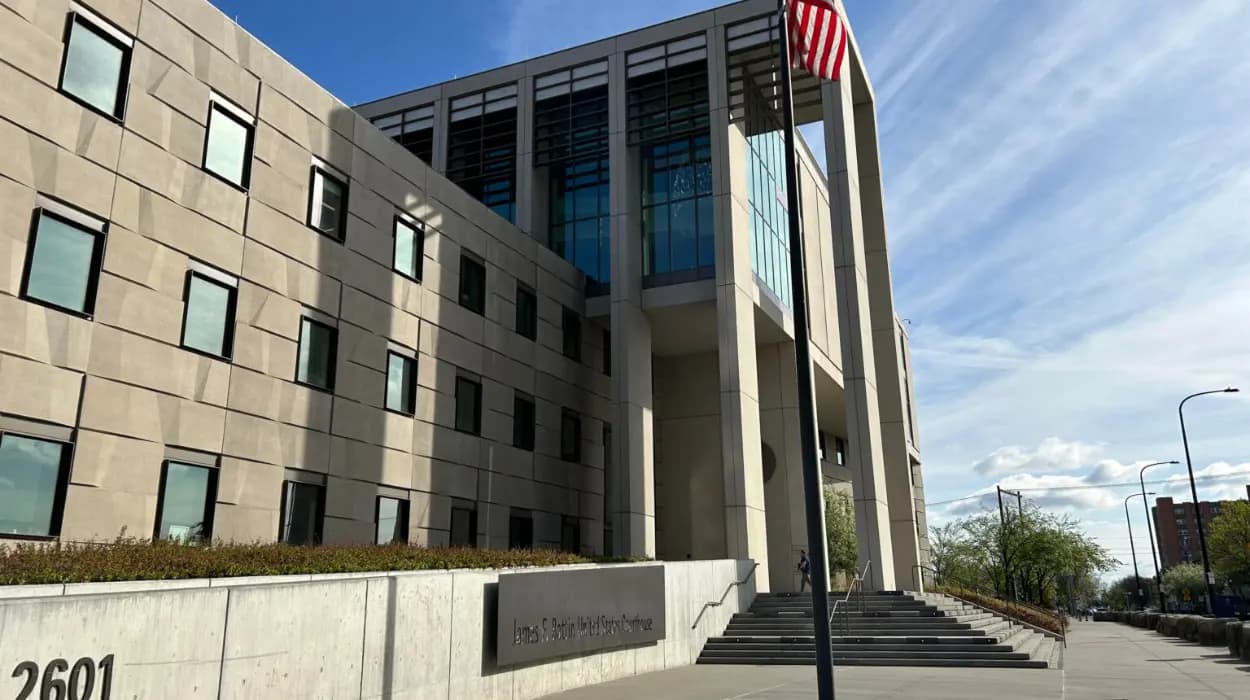Summary
- Trump's nominee Kurt Alme for Montana U.S. Attorney confirmation delayed.
- Senate Democrats objected, blocking confirmation of 10 U.S. Attorneys.
- Alme served as Montana U.S. Attorney under the Trump administration previously.
- Senate Democrats claim procedural precedent for blocking confirmations.
Since his appointment by Attorney General Pam Bondi in March, Kurt Alme has held the office in an interim capacity.
After being suggested by the U.S. Senator Steve Daines of Montana, Alme previously held the position of leading federal law enforcement official in Montana from 2017 to 2020 during the first term of President Donald Trump. The Senate unanimously approved his initial nomination.
However, Chuck Grassley, R-Iowa, the chair of the Judiciary Committee, has twice in the past week during Senate hearings asked for unanimous permission to confirm ten U.S. Attorney candidates by voice vote, avoiding the need for roll-call votes.
Minority Leader Chuck Schumer, D-N.Y., opposed on Monday to Grassley's proposal, while Ranking Committee member Dick Durbin, D-Illinois, objected last week, citing a precedent set by then-Sen. J.D. Vance, R-Ohio, during the Biden administration.
A restricted number of nominees for U.S. attorneys were placed on hold by Vance. In 2023, Vance also declared that he would "grind it to a halt" by putting a complete hold on all Justice Department candidates, Durbin stated in a Senate floor statement. Consequently, just 68 of Biden's 76 nominations for U.S. attorneys passed the confirmation process.
“I appreciate, Mr. Chairman, that you did not agree with Senator Vance’s actions back then, and I don’t believe you do now, but we can’t have one set of rules for Republican presidents and another for Democratic presidents,”
Durbin said.
Grassley responded with remarks on the floor asking Democrats to “relent form their partisan obstruction.”
“Debate and disagreement about policy is to be expected, but it should never come at the expense of public safety,”
Grassley said.
According to a statement from Grassley's office, 94% of President Biden's nominations for U.S. Attorneys were approved by voice vote, and the decision "forces the Senate to burn valuable hours of floor time" to process the nominations instead of using the expedited voice vote system.
Only two U.S. attorneys have been approved by the Senate thus far in Trump's second term: Jason Reding Quiñones for the South District of Florida and Jeanine Pirro for the District of Columbia, both by roll call vote. A voice vote on Quiñones' nominations was also prevented by Durbin.
Daines claimed that banning the nominees was an "unprecedented move" during a TV interview.
“We’ve got to to actually change the rules,”
Daines said.
“We’re working on that as Republicans so that we can go back to where we used to be, and that was getting these nominees like U.S. attorneys and other sub-cabinet level appointees through the U.S. Senate in a timely fashion.”
At the beginning of the Republican's first term as governor, Alme served as the state budget director for Governor Greg Gianforte following his initial tenure as U.S. Attorney. Less than a year later, he resigned from the job, citing the stress of travelling from his Billings home to Helena.
The U.S. Attorney's Office claims that Alme most recently held the position of Executive Vice President for Planned Giving at the National Christian Foundation.
How does Senate obstruction impact local law enforcement in Montana?
Without confirmed U.S. Attorneys, federal districts in Montana lack permanent leadership. Acting or interim officials typically fill these roles, which can limit continuity and authority in prosecuting federal crimes.
Delays in appointments can contribute to slower investigation and prosecution of violent crime, drug trafficking, and public corruption cases that require coordination between federal, state, tribal, and local agencies.
Interim U.S. Attorneys may lack the full mandate or political backing to implement new priorities, leading to reduced effectiveness in tackling crime trends or conducting proactive law enforcement strategies.

